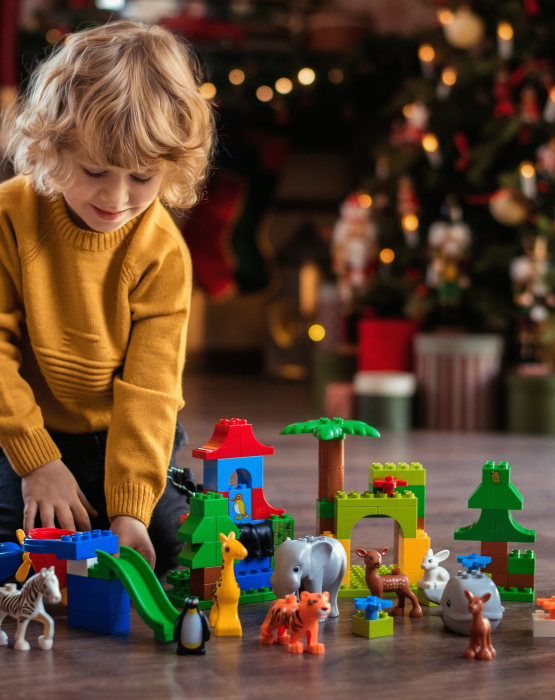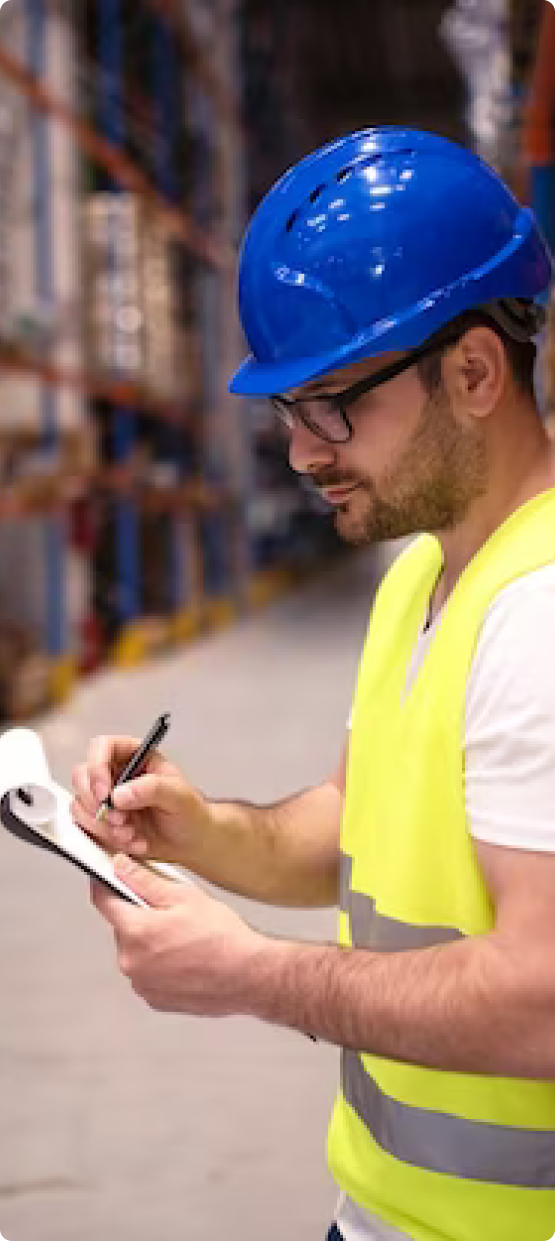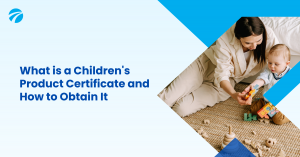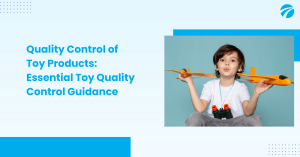Plastic Toys Inspection- Plastic Quality Control Expertise
Quality Control for Plastic toys
Children & Baby Toys (Plastic) Inspection
Plastic toys inspection is an essential step in ensuring the safety, quality, and compliance of plastic toy products.
At Tetra Inspection, we offer expert inspection services tailored to meet the unique requirements of plastic toy manufacturers and importers.
Our experienced team of inspectors is well-versed in plastic toy quality control standards and utilizes advanced techniques and tools to assess various aspects of these toys, from material safety to design integrity.
To ensure your plastic toy products are safe, reliable and compliant, schedule an inspection today!
PLASTIC TOYS INSPECTIO
Importance Of Plastic Toys Inspection
Plastic toys inspection plays a vital role in the toy manufacturing industry by ensuring that plastic toys meet the necessary standards for safety, durability, and overall quality. Safety is of utmost concern when it comes to toys, especially those designed for children.
Here are five critical aspects to consider during a plastic toys inspection:
Material Safety: Plastic toys must be manufactured using safe and non-toxic materials that comply with international safety regulations. Inspectors assess the materials used in toy production to ensure they are free from harmful substances like lead, phthalates, and other hazardous chemicals.
Mechanical and Physical Properties: The structural integrity of plastic toys is crucial to prevent choking hazards or injuries. Inspections include assessments of components like small parts, sharp edges, and potential breakage points to guarantee the toys’ safety during play.
Design and Construction: The design and construction of plastic toys impact their overall quality and appeal. Inspectors evaluate the design’s ergonomics, functionality, and aesthetics to ensure that the toys are both enjoyable and safe to use.
Labeling and Age Grading: Proper labeling on plastic toys is essential to inform consumers about age-appropriate usage and any potential hazards. Inspectors verify that toys are correctly labeled with age recommendations, safety warnings, and manufacturer information.
Small Parts Testing: To prevent choking hazards, small parts testing is crucial for toys intended for young children. Inspectors use specialized tools to assess the size and durability of small components to ensure they meet safety standards.
Plastic TOY TESTING
Key Elements Of Plastic Toys Inspection
Plastic toys inspection is a crucial process aimed at ensuring the safety, quality, and compliance of these products with international standards and regulations. To effectively carry out this inspection, several key elements must be considered.
Here is how we perform plastic toy inspections in a professional and thorough manner.
Regulatory Compliance Assessment: The first step in plastic toys inspection involves a meticulous review of the product’s documentation, including children’s toy product certificates. We ensure that the manufacturer adheres to relevant safety and quality standards, such as ASTM F963, EN 71, and CPSIA.
Visual Inspection: Our inspectors conduct a comprehensive visual inspection of the plastic toys. They look for any visible defects, such as sharp edges, rough surfaces, broken needles or irregular shapes. This step also includes checking for appropriate labeling, including age-appropriate warnings and hazard labels.
Material Analysis: Understanding the composition of the plastic used in the toys is vital. We perform material analysis to confirm that the materials are non-toxic, lead-free, and phthalate-free. This analysis is conducted through spectroscopy and chemical testing.
Mechanical Testing: Mechanical testing assesses the toys’ durability and structural integrity. It involves subjecting the toys to various stress tests, such as compression, tension, and impact resistance, to ensure they can withstand normal wear and tear without posing a safety risk.
Small Parts Inspection: To prevent choking hazards, we inspect plastic toys for small parts that may detach and become a potential choking hazard for children under a certain age. This is done by using specialized equipment and templates to assess the size of the parts.
Chemical Testing: We perform rigorous chemical testing to detect the presence of harmful substances, such as heavy metals, BPA, and phthalates. Our analysis includes tests for colorfastness, chemical migration, and other chemical properties that could pose health risks.
Flammability Testing: Safety is paramount, and we conduct flammability tests to evaluate the toys’ resistance to ignition. This ensures that plastic toys do not present a fire hazard.
Functional Testing: Functional testing assesses the toys’ intended features and mechanisms, such as electronic components, batteries, and moving parts. We verify that these functions work correctly and do not pose any safety concerns.
Age-Appropriateness Assessment: It’s essential to ensure that plastic toys are suitable for the intended age group. We evaluate whether the design and functionality align with the recommended age range specified by the manufacturer.
Packaging and Labeling Review: Our inspection includes a review of the packaging to verify that it provides adequate protection during transportation and storage. We also check for
Different Types Of Plastic Toys We Inspect
The world of plastic toys is incredibly diverse, offering a wide array of options to cater to the entertainment, creativity, and development of children and enthusiasts of all ages. From action figures to imaginative dolls, from thrilling toy cars to versatile building blocks, the choices are endless. However, amidst the fun and excitement that plastic toys bring, ensuring their safety and quality is paramount.
Here are some of most popular plastic toys we regularly inspect:
- Action Figures
- Dolls
- Toy Cars
- Building Blocks
- Board Games
- Jigsaw Puzzles
- Toy Robots
- Toy Animals
- Water Guns
- Toy Airplanes
- Toy Trains
- Musical Instruments (plastic versions)
- Educational Toys
- Toy Kitchen Sets
- Toy Tools and Construction Sets
VITAL STEP IN THE Toy Quality Control
Plastic Toys Quality Control Process
The quality control process for plastic toys at Tetra Inspection is a pivotal stage in guaranteeing the production and distribution of safe and high-quality toys for consumers. Our approach is thorough and systematic, ensuring that every aspect of toy manufacturing is meticulously examined to identify and rectify defects, hazards, or any deviations from stringent quality standards.

In the Initial Production Inspection phase, we establish a collaborative partnership with manufacturers, emphasizing the importance of adhering to design specifications, verifying the quality of materials, and assessing their production capabilities. This foundational step sets the tone for a quality-driven process.
Our team of experts rigorously verifies each individual component of the toy, leaving no room for subpar materials. This meticulous component verification process ensures that only the highest quality elements are used in the production.
In addition, we review design specifications with a fine-tooth comb, confirming that they align seamlessly with industry-specific quality and safety standards. This step not only reinforces the commitment to quality but also ensures that the toys meet regulatory requirements.
Throughout the production phase, we maintain a continuous presence to detect and address potential issues as they emerge. During Production Inspections are conducted to scrutinize workmanship quality, assembly, and overall construction.
Our commitment to this step enables us to catch and rectify any defects or deviations from established quality standards in real-time, minimizing disruptions and ensuring a smooth production process.
Should we identify any shortcomings or discrepancies, corrective measures are swiftly implemented, emphasizing our unwavering dedication to delivering impeccable plastic toys.
The final inspection is a critical juncture in our quality control process. We select random samples from the production batch and subject them to a comprehensive examination. This meticulous approach ensures that the entire batch meets our stringent quality criteria.
Functional testing is an integral part of this final inspection. We ensure that every feature of the toys functions precisely as intended, providing consumers with a reliable and enjoyable play experience.
Moreover, we supervise the packaging and loading of the toys to safeguard against any damage that may occur during transportation. Our commitment to quality extends beyond the manufacturing facility to ensure that the toys reach consumers in pristine condition.
Plastic toys quality standards
Applicable Standards For Plastic Toys Quality Control
Plastic toys quality control is essential to ensure that these play items meet established safety and quality standards, providing children with safe and enjoyable play experiences. Various international, regional, and national standards govern wooden toys quality control, addressing factors such as safety, materials, design, and craftsmanship. Here are some key standards applicable to wooden toys quality control:
ASTM F963: This is a comprehensive U.S. toy safety standard that covers various aspects of toy safety, including materials, design, flammability, and choking hazards. It includes guidelines specific to wooden toys.
EN 71: This European standard outlines safety requirements for toys, including wooden toys, sold within the European Union. It covers aspects such as mechanical and physical properties, flammability, and chemical properties.
ISO 8124: This international standard provides safety requirements for toys, including wooden toys. It addresses potential hazards related to mechanical, flammability, and chemical aspects of toys.
CPSC Regulations: The U.S. Consumer Product Safety Commission (CPSC) sets regulations for toy safety in the United States, including wooden toys. These regulations cover various safety aspects to prevent harm to children.
ASTM D4236: If the wooden toys include art supplies or paints, this standard outlines labeling and testing requirements for potentially hazardous art materials.

Why Do You Need To Obtain A Children’s Product Certificate
A Children’s Product Certificate (CPC) is a critical document for manufacturers and importers of products intended for children. It is a formal declaration that attests to the product’s compliance with relevant safety standards and regulations, particularly those designed to protect children’s health and well-being. Obtaining a CPC is crucial because it serves as concrete evidence that a children’s product has undergone rigorous testing and adheres to strict safety guidelines.
The importance of a CPC lies in its role in ensuring the safety of young consumers. Children are particularly vulnerable to hazards in everyday products, from toys to clothing, and even furniture. The certificate acts as a guarantee that the product has been thoroughly examined for potential risks such as choking hazards, toxic substances, flammability, and mechanical safety issues. It demonstrates a commitment to the well-being of children and helps build trust with consumers and regulatory authorities.
Moreover, without a valid CPC, manufacturers and importers may face legal consequences and restrictions on selling their products. In some regions, non-compliance can lead to hefty fines, recalls, or even the prohibition of the product’s sale. Therefore, obtaining a Children’s Product Certificate is not just a legal requirement but a fundamental step in ensuring the safety, credibility, and marketability of children’s products.
Tetra Inspection's Wooden Toys Inspection Services
Comprehensive Inspections
Tetra Inspection conducts thorough pre-production, in-process, and pre-shipment inspections for wooden toys, ensuring that safety and quality are upheld at every stage.
Customized Solutions
Recognizing that our clients have unique requirements, Tetra Inspection offers customizable inspection solutions that match your specific design, materials, and safety criteria.
Highly Skilled Inspectors
Our team of seasoned inspectors brings deep expertise in wooden toys quality control, meticulously evaluating each aspect of your toys to ensure safety, craftsmanship, and play value.
Timely Reporting
Rely on Tetra Inspection to provide detailed inspection reports within 24 hours, allowing you to address any concerns promptly and ensure the quality of your wooden toys.
Schedule Your Plastic Toys Inspection Today
Count on our team of seasoned experts to conduct meticulous plastic toys inpsection, minimizing risks, and ensuring strict compliance with international standards.
BLOG
Related Articles
shipment, minimizing risks and ensuring compliance with international standards.





